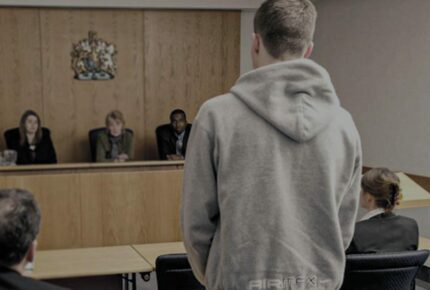

If you have ever been involved with the justice system, whether as a defendant or a witness, you have probably heard of the term perjury. You probably also know that the consequences, if you are found to have intentionally misled the court, can be severe. However, the finer details of what constitutes perjury and when it will be prosecuted are a little less clear and well known. This article aims to clear up any confusion. The first section unpacks the offence of perjury in England and Wales. It explains the legal elements of the offence and provides some examples. The second section of the article looks at the sentence that you could face if you are convicted of perjury.
What is perjury in England and Wales?
The offence of perjury is contained the Perjury Act 1911. The wording of Section 1 of the Act states that perjury is:
‘if any person lawfully sworn as a witness or as an interpreter in a judicial proceeding willfully makes a statement material in that proceeding, which he knows to be false or does not believe to be true.’
To break this down, perjury is:
- A crime that can be committed by a witness or an interpreter in any court proceedings. This includes civil and criminal court proceedings. It could also include proceedings in other institutions, such as the Employment Tribunal.
- The term ‘witness’ in this context also includes a defendant in criminal proceedings.
- Perjury can be committed by an interpreter who intentionally falsely translates a statement by a witness or falsely translates a question being put to a witness.
- ‘Judicial proceedings’ can refer to any proceedings before the court or tribunal, and can also refer to statements made for the purpose of judicial proceedings, like an affidavit. Thus, it is possible to commit perjury outside the court in situations where you may be required to provide information under oath. However, giving false information during a police interview, for example, would not count as perjury – as you are not under oath during that time.
- The false statement must be ‘material in that proceeding’, i.e. it must be information of relevance to the case. If the defendant lied about the colour of the curtains in his mother’s house, and that information was irrelevant to the charges brought against him, he could not be convicted of perjury just for that.
Evidential requirements
To achieve a conviction for perjury, the prosecution cannot rely solely on the evidence of one other witness – i.e. a prosecution will not succeed if it’s one person’s word against another’s. Section 13 of the Perjury Act highlights the need for corroboration. This could include witness evidence combined with documentary evidence or the evidence of multiple witnesses.
Related offences
Often, perjury will also amount to perverting the course of justice. Perverting the course of justice involves a series of acts intended to prevent justice from being done. Lying to the court, i.e. perjury, is often one of these such acts. However, a one off statement that constitutes perjury will not necessarily be perversion of the course of justice; it all depends on the intention of the witness making the false statement, and whether he or she has also participated in other conduct intended to undermine the course of justice.
The Perjury Act 1911 also sets out other offences relating to making a false statement. These include:
- False statements on oath made otherwise than in a judicial proceeding (Section 2)
- False statements with reference to marriage (Section 3)
- False statements as to births or deaths (Section 4)
- False statutory declarations and other false statements without oath (Section 5)
- False declarations to obtain registration for carrying on a vocation (Section 6)
Is perjury a criminal offence in England and Wales?
Perjury is a serious criminal offence in England and Wales, but not every lie to the court will result in a prosecution taking place. The Crown Prosecution Service (CPS) will consider whether it is in the public interest to bring a prosecution.
Perjury by a defendant
If a defendant has been convicted in spite of his or her perjured evidence, the CPS must consider whether bringing a prosecution for perjury is likely to result in a substantial increase in his or her sentence.
The CPS is likely to adopt a cautious approach because if the defendant is acquitted for perjury, this may be taken to undermine the safety of their conviction for the index offence. This could, for example, be used by the defendant to appeal their original conviction. It is unlikely that a defendant would be prosecuted for perjury where they had lied on the spur of the moment whilst under the pressure of cross-examination. The CPS will look for evidence of pre-meditation i.e. has the defendant constructed a false version of events ahead of time? Therefore, where the defendant has been convicted, it is only in exceptional cases that an additional charge of perjury will be be brought.
Where the defendant has been acquitted and the perjury was material to the acquittal, this is a situation where the CPS might seek to prosecute for perjury. However, the CPS’ policy, following case precedent, is that the perjury prosecution must not give the impression that the CPS is seeking to ‘go behind’ the earlier acquittal.
Perjury by a defence witness
The CPS will not usually prosecute a defence witness if the defendant was convicted, unless:
- There is clear evidence of collusion between the defendant and the defence witness; and
- it is in the public interest to prosecute.
Where the defendant has been acquitted, it would usually be difficult for the prosecution to meet the evidential burden of prosecuting a defence witness. However, in some circumstances, a prosecution could take place if there is clear evidence of collusion and the prosecution is felt to be in the public interest.
Perjury by a prosecution witness
If a prosecution witness has lied to the court and this untruth has resulted in a conviction, it is likely that they will be prosecuted for perjury. However, if the lie is immaterial to whether the conviction occurred, and was made to protect the witnesses own interests, the CPS is unlikely to prosecute. The decision of whether to prosecute is a strategic matter for the CPS. More information on the CPS’ policies on prosecuting perjury can be found here. If you are concerned as to whether you may be prosecuted for perjury, seek the advice of a criminal defence solicitor.
What are some examples of perjury?
Here are some examples of conduct that would be considered to be perjury:
- Steven is on trial for burglary. His mother, who is a defence witness, lies and tells the court that Steven was at home on the night of the offence. The court finds that in fact Steven was not at home on the night, and Steven is convicted for burglary. In this situation, Steven’s mother would probably only be prosecuted if there was evidence that she colluded with Steven to tell a false version of events.
- Harriet is being prosecuted for harassing her neighbour Adam. Adam is a prosecution witness. He tells the court that Harriet banged on his door continuously for three hours one night. On the basis of this evidence, Harriet was convicted. It later transpires that Adam deliberately lied to the court to ensure that Harriet was convicted. Harriet’s conviction was overturned on appeal and Adam is convicted of perjury.
- Liam has been accused of shoplifting. During his trial at the Magistrates’ Court, he alleges that he only took the goods to give to his pregnant sister. It transpires that his sister is not pregnant, and Liam was aware of this at the time that he gave evidence. The court find that he stole the goods in order to sell them for commercial gain. Liam is convicted. Whilst he has committed perjury, it is unlikely that he would be prosecuted. However, his false evidence will be taken into account when the court considers the sentence that he should be given.
Note that even where perjury has taken place, this will not always result in a prosecution. As outlined above, the CPS take a calculated approach in respect of when it is in the public interest to prosecute perjury offences.
What is the penalty for perjury in the UK?
Perjury is an indictable only offence, which means that it must be heard in the Crown Court. It carries a maximum penalty of seven years’ imprisonment. It can also be punishable by a fine.
Perjury is an offence that is taken very seriously by the court, even if the case in which it occurs concerns a relatively minor issue or offence. This is because perjury is perceived to undermine the administration of justice.
There are not any sentencing guidelines currently in place for the offence of perjury. In 2019, Parliament was considering introducing general sentencing guidelines for when there are no specific sentencing guidelines available. However, these have not yet been brought into force.
Where to get further help
If you have been charged with perjury, seek the advice of an experienced criminal defence solicitor without delay. At Stuart Miller Solicitors, our team has many years of experience defending clients in cases ranging from straightforward summary offences to trials spanning weeks at the Crown Court. Contact us for a no obligation consultation today.

